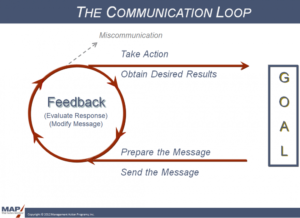Practice Email Etiquette
In light of the recent Sony hacking and its fallout, there’s at least one good lesson that we as business leaders should take to heart: Manage your emails on a professional level. While it seems like every day that an email scandal of one kind or another makes national news, many business leaders, employees, and organizations think their email privacy is foolproof. But it’s not, as was demonstrated when disparaging emails from Sony were hacked and publicized. Emails are tangible records that can surface and cause big problems. Moving forward in 2015, make a commitment to practice smart email etiquette and keep yourself free from this totally avoidable trap.
While you may not consider yourself a professional who has poor email etiquette, it can still pay to be overly careful about what you write and send to others. Once you hit “send,” your email becomes not just a record of your thoughts, feelings, and beliefs, but it is also proof of an action for which you are alone are accountable.
Click here to download our free effective communication checklist.
Here are three easy ways to improve work-email etiquette:Avoid humor. It’s amazing how a joke can be offensive to one person yet not to another. Add to that the fact that many jokes are targeted to poke fun at some group of people or are political, racist, sexist or generally unethical, and you’ve got a potential for disaster should you either initiate or respond to a humorous email. Jokes commonly cross a professional line and can compromise your reputation or, worse, result in you losing your job. My suggestion is keep humor out of work emails you write and don’t join in on the “fun” even if the humor seems relatively benign. If you do, you may then get caught up in a possible cycle of jokes that could change in nature and spin out of control, into a direction that you didn’t intend.
Ban bad language. This really has no place in the work environment, period. But sometimes people think the email platform gives them license to use bad language like they may do outside of work. They perceive it as somehow different from other professional communication platforms—yet it’s not. In fact, when 500 people in a company suddenly receive or catch wind of an email that contains inappropriate language from their leader, their respect for that boss can go down the tubes in an instant. Since bad language is also superfluous, keep your emails clean and concise by trimming out any words that may belabor your point and hurt your credibility.Don’t criticize others. Whether taking shots at someone who has upset you or simply gossiping about another co-worker because it feels fun, being critical about another in an email is simply asking for trouble. First, if it accidentally ends up in the wrong hands, it can really hurt someone. Second, if someone is out to get you, such an email could be used against you and hurt you. If you have something to say about another person in an email, make sure it’s only genuinely helpful, positive and/or supportive before you hit “send.” If you don’t, whatever wrong you write, could come back to haunt you later on.What other work email etiquette blunders should be avoided?



